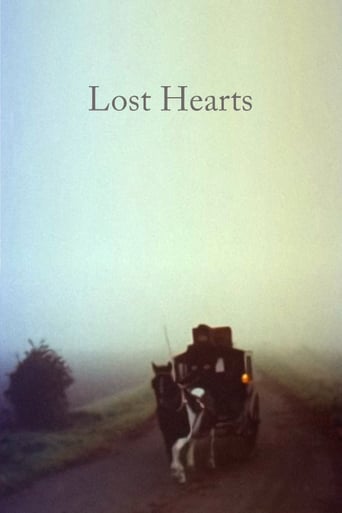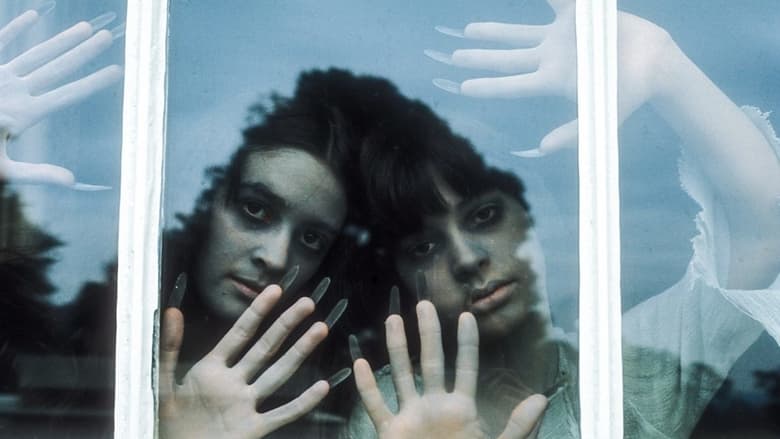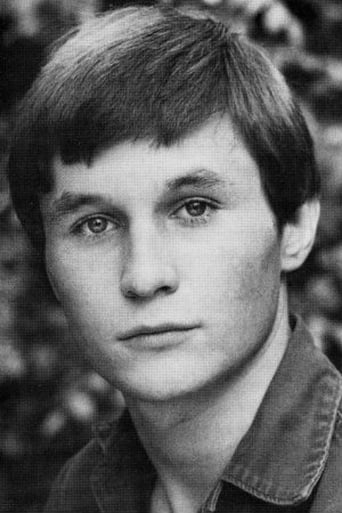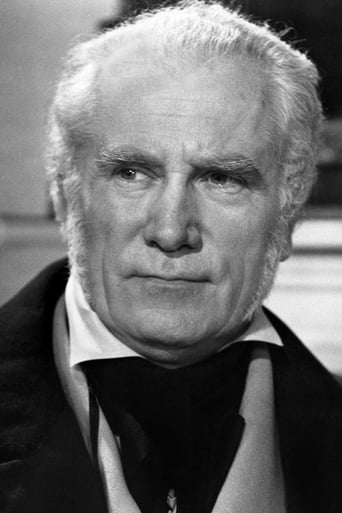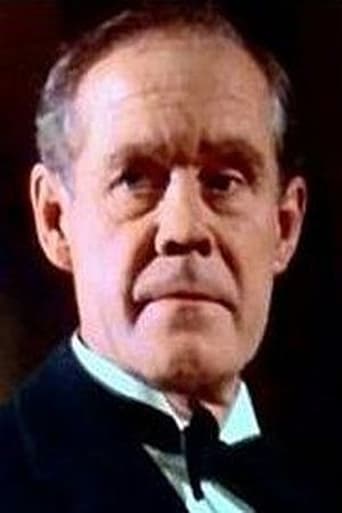Lost Hearts (1973)
A young orphan, Stephen, is sent to go and live with his strange, much older cousin at his remote country house. Once there, Stephen experiences terrible dreams in which he sees a young girl and boy who are missing their hearts.
Watch Trailer
Free Trial Channels
Cast


Reviews
I like the storyline of this show,it attract me so much
I am only giving this movie a 1 for the great cast, though I can't imagine what any of them were thinking. This movie was horrible
A film with more than the usual spoiler issues. Talking about it in any detail feels akin to handing you a gift-wrapped present and saying, "I hope you like it -- It's a thriller about a diabolical secret experiment."
The story, direction, characters, and writing/dialogue is akin to taking a tranquilizer shot to the neck, but everything else was so well done.
I've only recently begun appreciating the works of M.R James and this BBC TV series is an ideal place to begin."Lost Hearts" is a gripping story that focuses on the somewhat eccentric and sinister activities of a boys cousin as the former is an orphan who has been sent to live at his cousin's country estate.I enjoyed this episode all the way through as each scene bears relevance to the plot.
A few days before his 12th birthday, young Master Stephen is sent to the country to spend some time with his elderly cousin, Mr Abney, who is to be his new guardian, at his country manor. As he nears his destination he sees two young children waving at him in a slow synchronicity, he thinks their movements are odd, but when he takes a second look, they are gone. On arrival, he is shown to his cousin who immediately strikes Stephen as being very eccentric, being a man who writes down every trivial event of the day no matter how menial, Mr Abney seems very excited to learn that Master Stephen will soon be twelve on Halloween night, a fact he immediately leaves to the room to enter in his daily log, much to Stephen's bemusement. Mr Abney we learn is a man of science? his study is full of strange paintings and statuettes and studies it by way of his vast collection of antiquated books, but what exactly his work is, is anyone's guess? although Astrology and the Black Arts are hinted at. Stephen is a bright boy and is soon gleaning plenty of information on his cousin, from cook Mrs Bunch, he questions her about other children staying there, but there are none he learns, but there used to be, Mrs Bunch tells him. There was a young girl some years previously who Mr Abney brought home, he looked after her for a few weeks before she disappeared, Mr Abney's theory being that the girl was a gypsy and had been taken by them, still though he had trawled the nearby lake just to be sure. Then after her, there was an Italian orphan boy, Giovanni, whom Mr Abney found walking nearby, the boy was obsessed with playing the hurdy-gurdy, again Mr Abney took him in but the boy didn't stay long either and disappeared soon after, leaving behind his beloved hurdy-gurdy, a fact Stephen jumps upon as very odd. Stephen's dreams are very soon haunted by dreadful visions of the two children he had seen before, Are they real or ghosts, Stephen is unsure, as he continually catches fleeting glimpses of them here and there around Abneys estate. He also begins to hear voices, he learns he's not the only one either, as Mrs Bunch and handyman Parkes also hear them. On the eve of his birthday, Mr Abney invites young Stephen to a Halloween midnight rendezvous, to experience the gift of a lifetime, Stephen is at first hesitant as he is sure at that late hour he will be too tired, but eager to please his very insistent cousin, he agrees....It always amazes me how Clark is never mentioned is dispatches, when best horror director lists are being compiled, for he truly had a unique vision on how supernatural films should be filmed and should be better known and admired for his rather obvious talents. Again he delves into M.R.James's Ghost Stories of an Antiquary and ensures the screen equivalent is just as terrifying as the written word. He uses the beautifully stunning English countryside to perfection, as the ghostly children stand transfixed amidst wind rustled trees, as stealthily creeping fog encircles them, their gaze fixed on Mr Abney's manor. The look of the children is quite eerie and unsettling, especially their twisted fingers and elongated fingernails and is added to immensely by Giovanni's rather odd hurdy-gurdy music. Abney himself on the surface seems friendly, but behind the eccentric facade and failed experiments, we just know something dark lingers and its not long before our suspicions of his predatory nature are realized. For its time, the 1890's, James's extremely dark work seems to herald future, more modern concerns and yet still seems to contain even more unspeakable ideas. Stephen's dangerous and fateful midnight meeting, is the subject of the films finale and succeeds in providing us with yet more unsettling imagery. And yet another superb entry in the series is realized.
When M.R. James wrote LOST HEARTS in the late 1890s he little suspected that mainstream critics would intuit a dark undercurrent to this tale of occult sacrifice, yet BBC director Lawrence Gordon Clark shrewdly picked up on this subtle theme and brought it to the forefront of his 1973 adaptation of the story. Thus we have Mr Abney, an elderly and excitable black magician, preying sinisterly upon pubescent children in a manner which unpleasantly mirrors contemporary concerns over paedophilia. Mr Abney carefully selects vulnerable orphans for adoption. Once convinced that the children's disappearance will not be missed, he horribly murders them on the eve of their thirteenth birthdays, an age which historically associated with the maturation of the child. He lures them into his study, paralyses them with a drug, and then rips out their pulsating hearts from their live bodies. These he reduces to ashes which are then mixed with fine port wine and drank. Alas in Mr Abney's quest for immortal life occult wonders he finds himself subsequently haunted by the dead children, pallid creatures possessed of sinister talonesque fingernails and rent-open chests. Happily these creatures eventually exact a violent revenge upon their murderous adoptive parent.Lawrence Gordon Clark's adaptation of LOST HEARTS is perhaps his most powerful, partly because of this undeniably disturbing theme, partly because of his excellent direction. The opening scene which features a young boy arriving at Mr Anbey's manor house in a pony-and-trap through a haunting twilight mist perfectly evokes a lonely supernatural atmosphere. The spirits of the dead children are very frightening, and if in one or two scenes their acting appears slightly mechanical, the overall effect they create more than compensates for these minor defects. The action moves along briskly yet without appearing hurried. The central roles of Mr Abney and the young charge Stephen are played very well; Abney appears to bubble with an excitable Dickensian charm, yet under that energetic exterior a darker, predatory aspect is revealed. The ignorant working-class folk who run his ample home haven't the slightest knowledge about their master's obsessive interest in the black arts. Stephen is plausibly characterized, succeeding where many child actors may have failed. The scene in which he discovers a dead child's body in an old tin bath is truly harrowing.Clark clearly sensed a parallel with, or indeed an undercurrent of, paedophilia in James's original tale because he teases this theme out and expands upon it in his adaptation. The camera shots of Abney gloating over the boy are sinister. So might a spider regard a trapped fly. Clark adds one new scene which does not appear in the original story: a shot of a naked twelve year old girl in the bath, one of her breasts in side profile clearly displayed. Although James may have written in a pre-Freudian era, latter day critics and film-makers were perfectly capable of teasing out these subliminal themes from Victorian and Edwardian literature. Elsewhere Jonathan Miller had started the Jamesian ball rolling with his superb interpretation of WHISTLE AND I'LL COME TO YOU, portraying a repressed Professor as an emotionally retarded loner. Michael Reeves realistically portrayed the witch trials that swept across mainland Europe as cynical exercises in sadistic manipulation and avaricious profiteering in his critically acclaimed THE WITCHFINDER GENERAL. Clarke himself paid homage to this perspective in his BBC adaptation of M.R. James's THE ASH-TREE, depicting Mrs Mothersole as a sexually alluring woman branded a witch by men who lust after her in stark contrast to James's original, where the alleged witch was portrayed as a deserving victim. Clarke depicts Mothersole - buxom, bare-breasted and chained up in a dungeon - as a sexually alluring woman who only resorts to occult vengeance after being horribly abused herself, which is a realistic volte face of James's possibly chauvinistic original. And in SCHALKEN THE PAINTER, another ghost story adaptation from the 1970s, Clarke amplifies the undercurrent of sexuality that exists in the original Le Fanu tale in a very disturbing and effective manner. After all, Le Fanu did also author CARMILLA, one of the most overtly erotic Victorian ghost stories ever written.Clarke did not arbitrarily 'sex-up' any old BBC ghost story adaptation. There are no sexual overtones in his excellent versions of THE STALLS AT BARCHESTER, A WARNING TO THE CURIOUS nor THE SIGNALMAN. Clarke appears to have only amplified sexuality where it already existed as a theme or subconscious undercurrent. Indeed, one could even argue that James himself at some impossible-to-fathom level was aware of this concern about LOST HEARTS, hence his subsequent disregard for the tale subsequent to it's original publication in 1895.The BBC's adaptation of LOST HEARTS is one of the best ghost stories directed by Lawrence Gordon Clarke in the mid 1970s. It is faithful to the original and features many genuinely frightening scenes. Yet ironically the central theme of predation upon children, with its sly similie of paedophilia, a theme which imbues the tale with a dark and sinister edge, may have actually proved it's undoing because the BBC appears reluctant to repeat the film in the light of various child pornography scandals. Hopefully however the film will be released on DVD, or else repeated on TV with the benefit of a contextualizing introduction, because it would be a shame for an otherwise powerful drama to languish in the Beeb's vaults. LOST HEARTS poses unique political concerns and as such appears to present something of a problem to the television scheduler. It is every bit as effective as THE WICKERMAN but the child predation issue lends it a peculiarly discomforting air as elsewhere hangs over films such as STRAW DOGS or A CLOCKWORK ORANGE. However, because DVD pirates have already capitalized upon the pent-up demand for video copies of LOST HEARTS and THE ASHTREE by cobbling-together homemade versions to sell on Ebay, then the BBC would perhaps be wiser to satisfy this demand in some suitably responsible manner rather than ignore it.
I cannot stress just how terrifying the sight of these 2 ghoul children is!! Its one of those fantastic scenes that lingers in the mind long after the film is over. Its a pretty faithful adaptation of the short story to boot. This is definitely worth tracking down.

